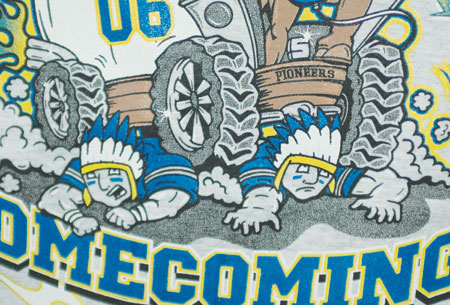"Finally about 1980, I started making this, what I would characterize as a slow-motion epiphany, into becoming an advocate, a very strong advocate, of our Native languages. Because all through my educational experience, it seemed to me like somebody had been lying to me about my own language, and about where I came from and what my identity was as a Northern Cheyenne person. ... It seems like I must have learned a new word, because I've been using 'slow motion' a whole bunch here lately. But it seems to me like back in 1492, a slow-motion massacre started. It gained in intensity in the late 1800s in the northern Plains territory, where they were actually killing us. The massacres were happening. Now, it has slowed down a little bit. But the massacres that started in 1492 are still happening today. They are hitting right at the heart of us, of who we are, because they are attacking our languages and our culture. The slow-motion massacre is occurring in curricula, it's occurring in media, it's occurring in the books that we read, it's occurring in the loss of our languages. And if we do not do anything to stop this, then we are accomplices in the slow-motion massacre of our languages, and of our culture. We've got to do something about this."







No comments:
Post a Comment